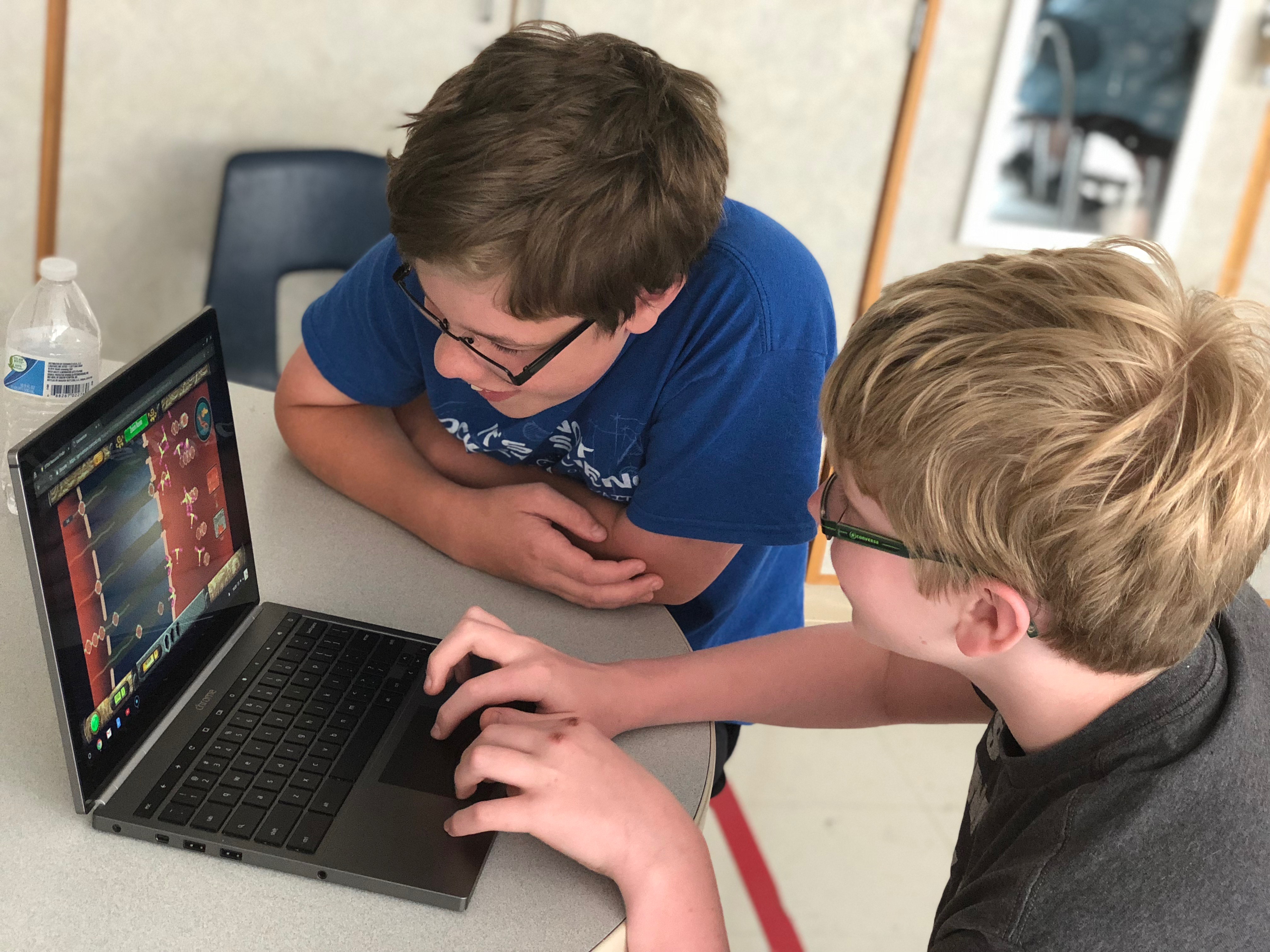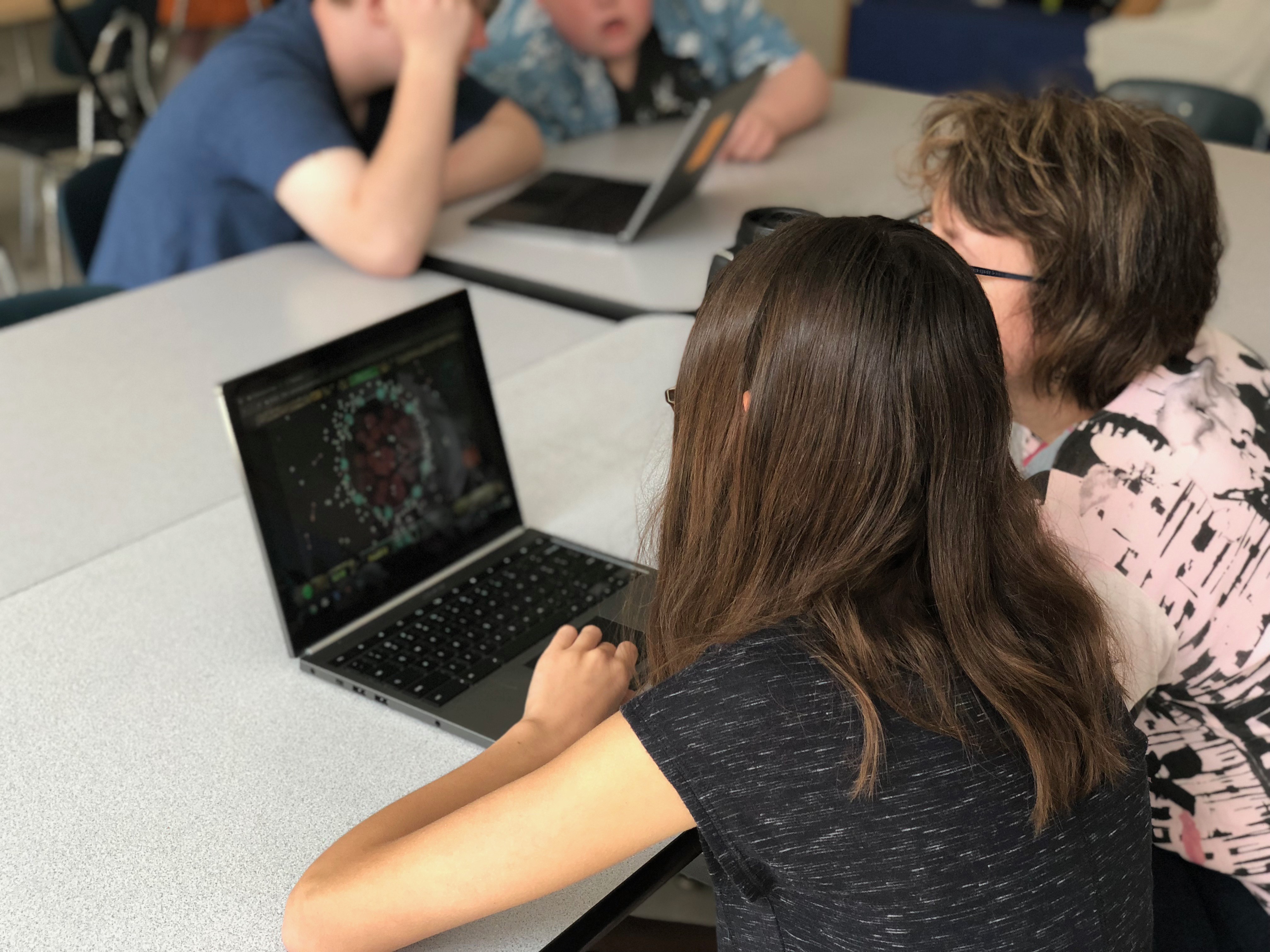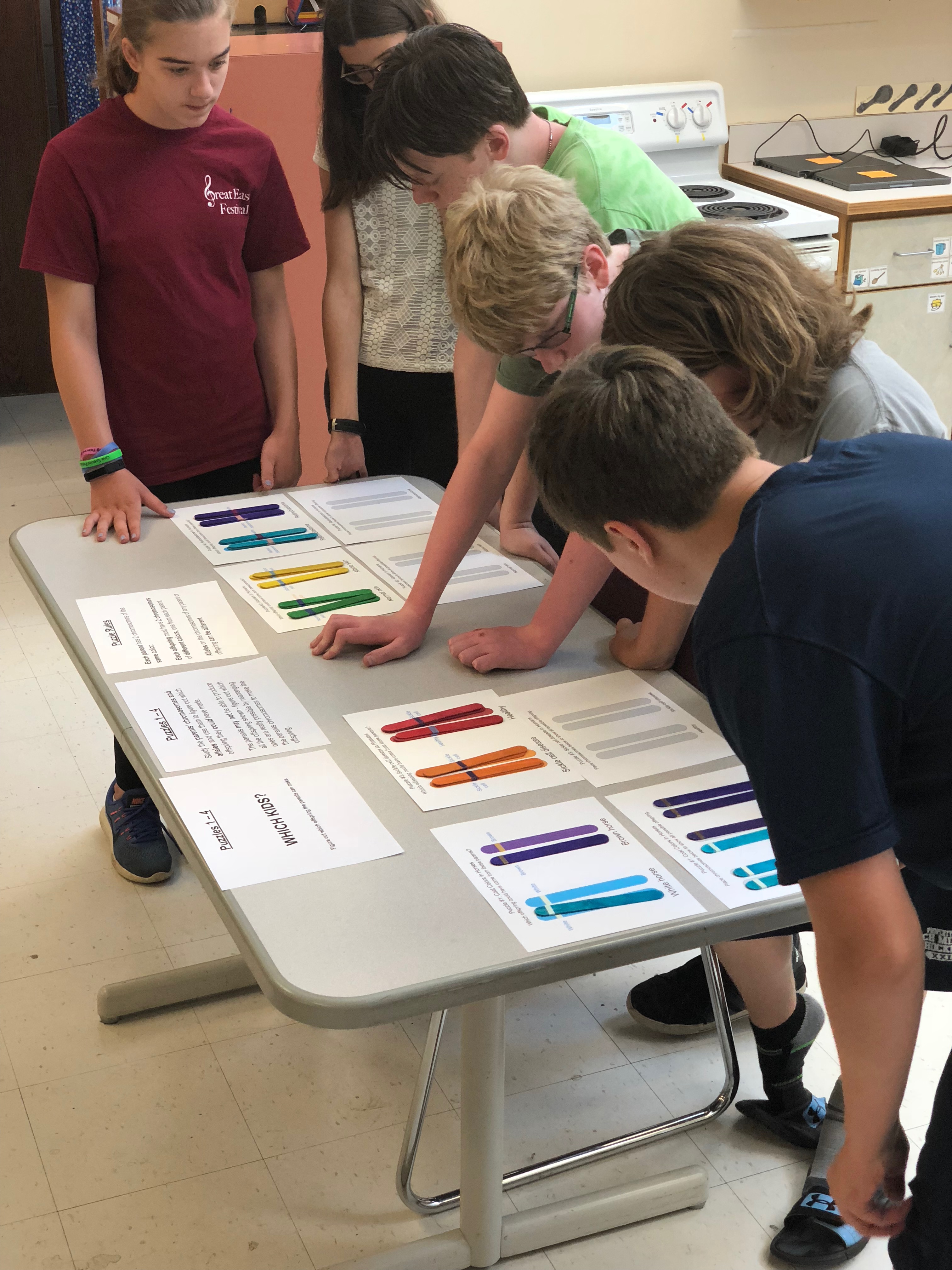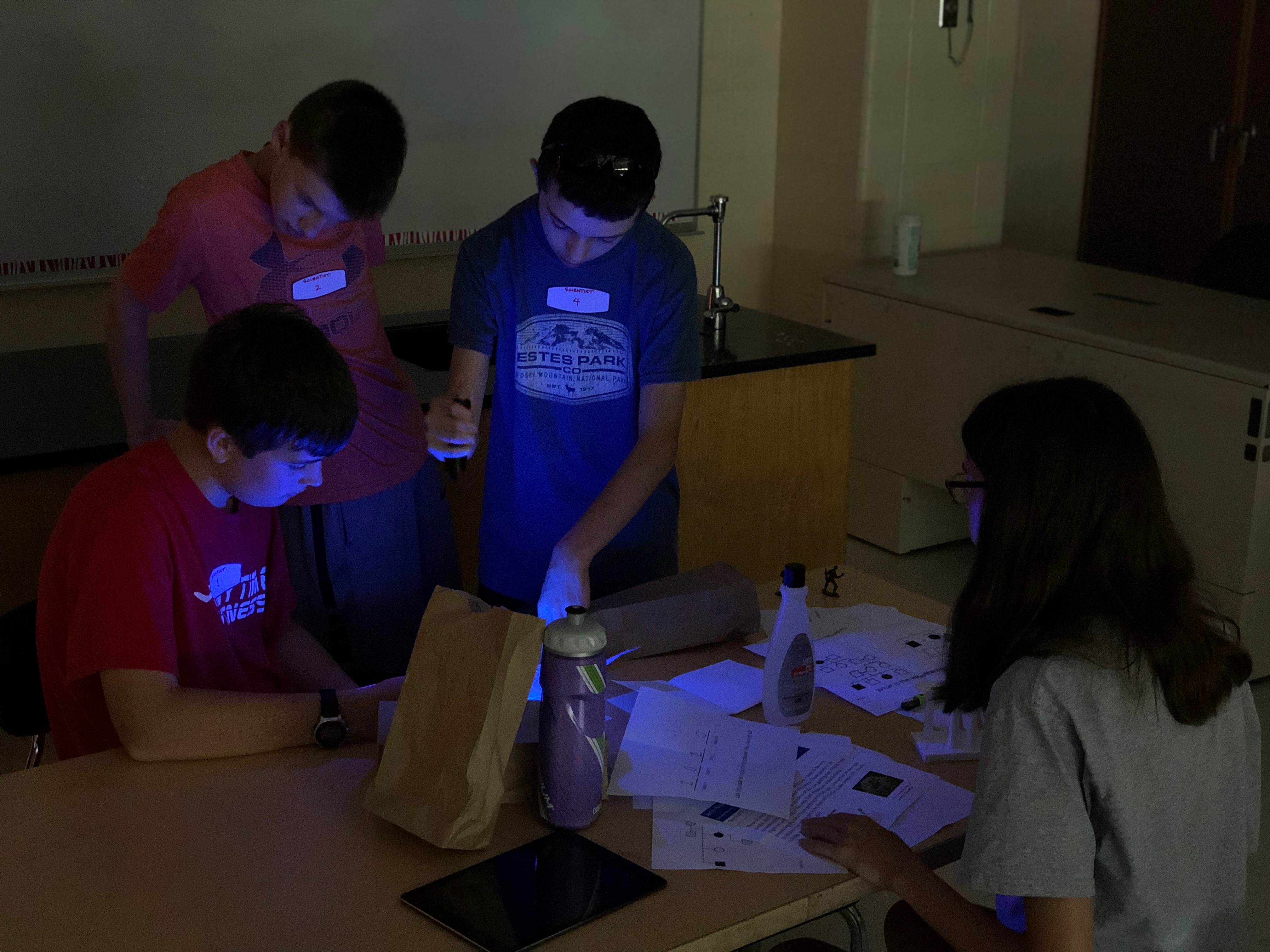How do dragons inherit wings and horns? What role do proteins play in dragons with translucent white scales? During a weeklong summer “camp” in Maynard, Massachusetts, designed for middle school students interested in online gaming and genetics, nine students in grades 6-8 played Geniventure to find out. They also applied genetics concepts to solve puzzles, work together as teams of scientists, and even break out of a genetics-themed escape room as part of the Geniventure: Dragons & DNA program hosted by the National Science Foundation-funded GeniConnect project.
What’d we do at summer camp?
Geniventure: Dragons & DNA ran for five consecutive three-hour sessions in June at the Fowler School in Maynard, MA, as a part of the Fowler After School Club. Each morning students learned a new topic in genetics (genes and traits, proteins to traits, meiosis and fertilization, inheritance, etc.). Then they got online and played Geniventure.
Students performed virtual genetics experiments with drakes, the model species for dragons, to understand how traits occur in an organism and are inherited across generations. (Geniventure is scientifically accurate and based on real genes.) They applied their newfound genetics know-how from the game to tackle hands-on activities: solving puzzles using popsicle stick chromosomes, making dragon slime from a set of genetic instructions, and working with a group of fellow student-scientists to unravel the “Whose Baby?” mystery by testing synthetic blood samples.
Students also went on a field trip to Biogen’s Community Lab in Cambridge, Massachusetts, where they used real biotech lab equipment and techniques to perform an analysis on the different dyes used in the candy coating of M&M’s. Decked out in lab coats and safety glasses, students were introduced to Biogen by the Community Lab Teaching Associate and learned safety protocols before the highlight of the trip: the M&M experiment and data analysis.
At the end of the week, students participated in the capstone activity: The Genetics Escape Room. They worked in two different teams to unlock cabinets using codes and keys, solve riddles and genetic puzzles, and find hidden clues (yes, invisible ink was involved) to prevent an imaginary disease bomb from unleashing a horrible genetic disease on the town. After 90 minutes and a few hints from program leaders, students solved the mystery of who on their team had the protein that made them genetically “resistant” to the disease and sent them into the infected area to disable the bomb with only seconds to spare on the countdown clock!
Next steps: Measuring summer camp success
It was evident that the kids were having fun. Their smiles said it all. Numerous rave reviews from parents confirmed this. The GeniConnect project aims to learn not only if kids had fun. The goal is to develop a cohesive program that will increase STEM knowledge, motivation, and career awareness. At the end of the week, students completed a survey customized for GeniConnect by the PEAR Institute: Partnerships in Education, Afterschool, and Resilience, asking students to think about how they feel about what they learned in genetics, how much they know about genetics jobs, and their curiosity about STEM compared to before they started the program. We plan to compile the survey data along with an analysis of the students’ performance in the game to further evaluate the success of the Geniventure: Dragons & DNA summer program and inform future implementations.
 Students playing Geniventure.
Students playing Geniventure.
 Students playing Geniventure.
Students playing Geniventure.
 Students making dragon slime.
Students making dragon slime.
 Students solving chromosome puzzles.
Students solving chromosome puzzles.
 Students working together to escape the Genetics Escape Room.
Students working together to escape the Genetics Escape Room.